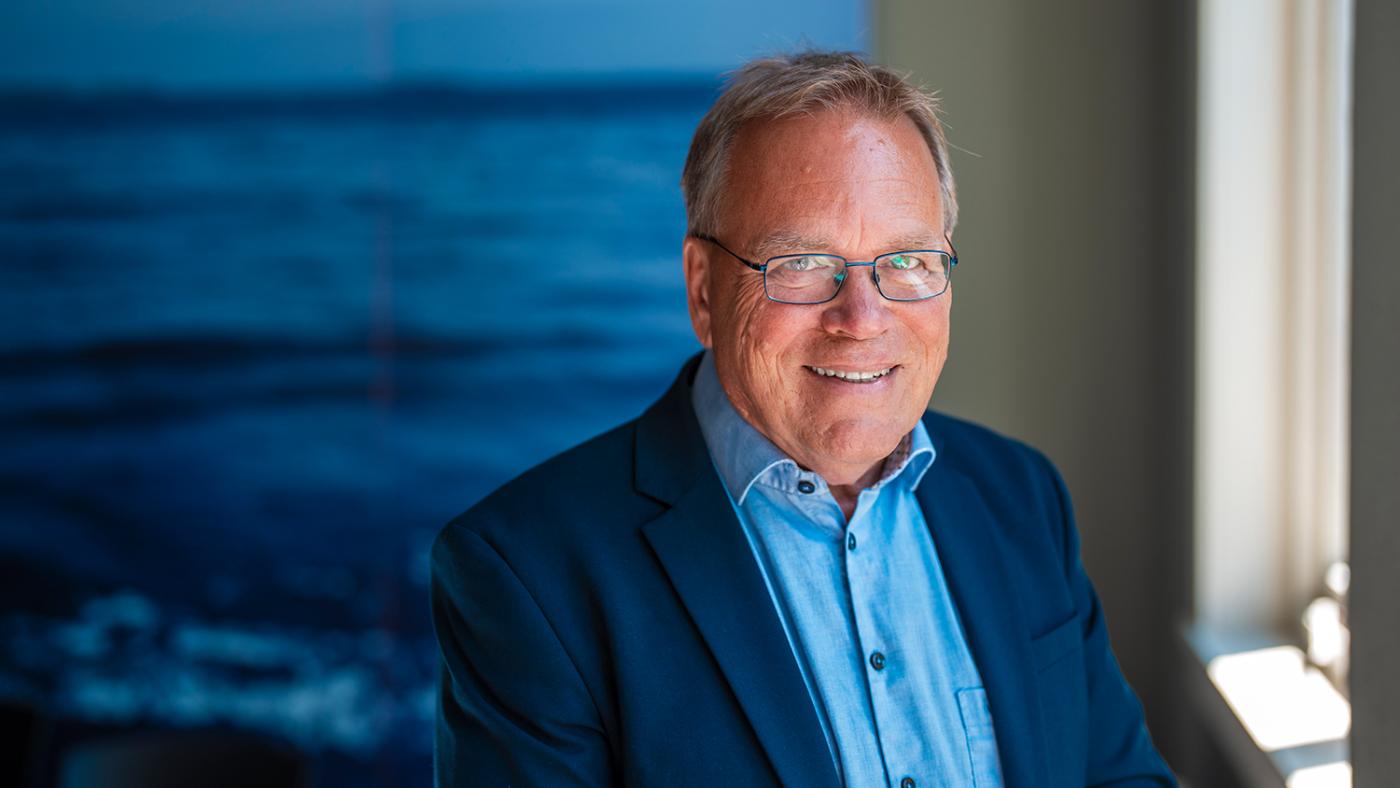Utrecht University's extension courses
‘Nowadays, a diploma is just a stepping stone’

'How high do you set the bar?' asks a well-known Dutch education provider in an advertisement. Like this private institution, many others invite professionals to brush up on their skills. These courses are offered not only by commercial providers, but also by universities, universities of applied sciences, and secondary vocational education institutions. People take such courses for several reasons: some need to update their knowledge to remain competitive in the labour market, while others would like to take their careers to the next level, and some want to change jobs or careers altogether.
None of this comes as a surprise in a world that is changing so rapidly, with challenges such as the energy transition and technological developments such as artificial intelligence. These developments also have consequences for the labour market. Certain jobs are disappearing, new ones are being created, and the tasks of the jobs that still exist are changing. In addition, the Netherlands has been struggling with labour shortages in sectors such as education and healthcare.
There are also many changes taking place in society. Between 2013 and 2023, the retirement age was gradually increased in the Netherlands, so not only do people work longer nowadays, but they also tend to change jobs more often than in the past. But that is not all: societies are also becoming more polarised, European governments are increasing defence spending due to geopolitical turmoil, and the demand for healthcare is growing alongside life expectancy.
In order to respond to all these changes, new knowledge is required for both employers and employees, to ensure that people continue participating in society.
Working with society
In recent years, Utrecht University (UU) has turned its focus to working people in addition to Bachelor's and Master's students. The university does not want the knowledge gained through research to stay confined within the walls of academia, a trend that has been supported by politicians. Universities were then given the additional task of making their knowledge available to the rest of society, engaging more with the outside world both in terms of education and research. Extension courses, also known as Continuing Education, are part of these efforts.
In 2016, the university's policy established that an attractive and topical range of lifelong learning courses should be offered, and a dedicated programme ensued. UU's mission statement now includes the aim of 'connecting thinkers with doers so that new insights can be applied in practice', and its website states that the university wants to “take academic knowledge to places where it is needed'.
In 2018, the professor of Society-Oriented Higher Education at UU, Wieger Bakker, was appointed Dean of Lifelong Learning. The appointment of a dedicated dean signalled the importance the university attached to the programme, then rector Henk Kummeling stated. Bakker's tasks include expanding the existing range of courses to offer a broader and more differentiated selection. These courses also had to be related to research and tailored to the labour market and professionals.
Now, continuing education is featured just as prominently as Bachelor's and Master's degrees under the 'Educational Programmes' heading on UU's website. UU currently offers over 250 courses across its seven faculties. These range from masterclasses, short and long-term courses, courses developed on request, and drop-in courses where professionals share the lecture hall with students. There are also entire Master's programmes for professionals. Most of those are given during the academic year, but some courses of the Utrecht Summer School also fall under this category. The university also provides tailor-made courses on request, which are not always visible in the course catalogue. The Faculty of Science, for example, provides many in-company training courses.
‘We want to offer our knowledge in its entirety for the benefit of society,’ says Bakker. ‘In so doing, we are providing not only the future generation of professionals with the most up-to-date knowledge and expertise, but also the current one. In addition, we want to prepare our students for lifelong learning, because a university degree is only a stepping stone these days.’
According to Bakker, the university sees it as its social responsibility to offer education to professionals. After all, doing so is not an obligation imposed by the government. The main difference between extension courses offered by commercial providers and extension courses offered by the university is that UU transmits up-to-date scientific knowledge. ‘We are at the forefront of research and aim for our knowledge to contribute to keeping our society liveable.’

Wieger Bakker. Photo: Ivar Pel
People without academic diplomas are welcome
UU's extension programmes are aimed at people working at the higher professional education level. However, according to Bakker, some people can also reach this level through practical experience alone. ‘They too may need up-to-date expertise and support in applying it to the issues they are working on. We want to make our knowledge and expertise accessible to a wider target group,’ explains the lifelong learning dean.
Most extension students do not have to write papers or take old-fashioned exams. Bakker: ‘Assessment usually takes place in practice, with the exception of our Master's programmes. For example, students are asked to come up with practical examples that show how they applied the knowledge they have acquired, or analyse examples provided by the lecturer.’
Students receive a certificate if they complete the programme. Some courses, however, can only be completed by passing a test. In this case, the students receive a microcredential. The Master's programmes aimed at professionals meet all legal requirements and graduates receive a full diploma upon completion.
Research, education, and continuing education
Bakker knows that the social benefits of lifelong learning are now widely recognised at the university. However, some programmes have developed more courses than others. ‘Programmes that have traditionally provided education for people in professional practice, such as lawyers, medical professionals and those in administration and policy, are leading the way in this respect and offer a wider range of courses.’
According to Bakker, lecturers run into two main obstacles when setting up an extension course. First, it is not always easy to meet professionals' needs. ‘Most lecturers are not entrepreneurs by nature, which sometimes makes it difficult for them to develop such a course. The good news is the university can support them with this.’
The second obstacle is workload-related. Many lecturers feel as though they must set up lifelong learning courses alongside their other tasks, without being given time to do so. ‘Unfortunately, this has not yet been properly organised across the university. Some lecturers see this task as something they must do on top of their work, but developing and delivering education for professionals can't be done on a voluntary basis. It is now an official task for every lecturer, for which they should be allocated hours.’
Bakker has seen the number of extension courses grow in recent years and hopes that more lecturers will get excited about teaching professionals once they discover the benefits of working with them. 'As a teacher, you not only impart knowledge, but you also gain knowledge. These courses often attract people from different backgrounds and professions, who share their practical experience with each other. That is a valuable experience. Not only does the teacher see how knowledge is being applied, but they also pick up practical examples that they can use in their lectures to regular students. The people they meet can also help them arrange internships for students, for example. Last but not least, they gain ideas for their current research project or new projects.'
Personal development budget
In recent years, the Ministry of Education, Culture and Science has paid significant attention to lifelong learning (LL). Policy letters show that the ministry considers retraining and reskilling necessary due to the rapid developments of the last decades and the tight labour market. For this reason, it has made various subsidies available to educational institutions, such as the LL catalyst, which has millions of euros at its disposal. Last September, Utrecht University, ROC Midden Nederland and the Utrecht University of Applied Sciences received 4 million euros to jointly develop courses in the field of energy and raw materials transition for the companies Bloemendal Bouw, Stedin and Van Dorp.
The Social and Economic Council has been a lifelong learning champion for many years. During the Unprecedented Talent symposium this spring, its chair, Kim Putters, said that 'every citizen must be able to fully participate in a society that is changing at an ever-increasing pace'. He believes that every citizen should be given learning rights or a personal development budget to pay for further training and retraining courses. After all, extension courses (including the ones offered at UU) are not cheap (see box below, Ed.). Students must pay for these costs themselves if their employers don't cover the costs entirely or partially. After the tax deduction for education was abolished, a budget of 1,000 euros per year was introduced. However, this will also be abolished in 2024.
According to Bakker, Continuing Education will remain part of the university. The goal is to fully integrate this type of education into the university's work by 2026. 'And, in ten years' time, it should be ingrained in the university's DNA', he says. He is not concerned about the budget cuts imposed by the government, relying on former rector Henk Kummeling's words: ‘Continuing Education is not a worm-like appendage that is the first to be cut when budgets are tightened.’
Who pays for extension courses?
Education for professionals is a private activity. Therefore, the funds that UU receives from the Dutch government cannot be used for this purpose. That explains why a course lasting only a few days can easily cost 1,000 euros: UU must charge at least the cost price for all hours spent on the course. 'We do not use these courses as a way to generate additional income. Any profits we make are used to develop new courses. In the future, continuing education could become an additional source of income for the entire university. That would be great, especially if government funding declines,' says Bakker.

This is an article from DUB's Lang zullen we leren! (Long may ww learn!) magazine, which was made in collaboration with Utrecht University's Continuing Education programme. The magazine can be found in several buildings of the university but all the articles from the magazine are also available online. Over the next two months, DUB's website will feature several of those articles and stories, as well as publish a few additional online-only articles about continuing education. You can find all the articles related to the magazine here.
Comments
We appreciate relevant and respectful responses. Responding to DUB can be done by logging into the site. You can do so by creating a DUB account or by using your Solis ID. Comments that do not comply with our game rules will be deleted. Please read our response policy before responding.